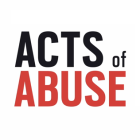
Georgia Closing Juvenile Prison With Nation’s Highest Rate of Sexual Victimization
|
DJJ Communications Director Jim Shuler told JJIE the BJS report on sexual victimization was not a factor in closing the site.
Juvenile Justice Information Exchange (https://jjie.org/author/james-swift/page/2/)

DJJ Communications Director Jim Shuler told JJIE the BJS report on sexual victimization was not a factor in closing the site.

How a Missouri mother turned her family’s tragedy into a national reform movement and changed her state’s juvenile justice system.

A new report released by the International Association of Chiefs of Police (IACP) takes a look at law enforcement perspectives on young offenders and juvenile justice system collaboration. Nearly 1,000 agency executives were interviewed for the survey, which was supported by the John D. and Catherine T. MacArthur Foundation. According to researchers, nearly four out of five respondents said they believe law enforcement leaders should play pivotal roles in the juvenile justice system.

Despite federal law recognizing child prostitutes as sex trafficking victims, many states are still treating commercially sexually exploited young people as criminals.

Attempts by Missouri legislators to override Gov. Jay Nixon’s veto of a bill that would have removed hundreds of individuals from state sex offender registries faltered earlier this month.

Earlier this month, North Carolina’s Department of Public Safety announced the consolidation of its adult and juvenile correctional offices.

Massachusetts now includes 17-year-olds in its juvenile justice system. Only 10 states remain which place 17-year-olds under adult court jurisdiction.

For low-level juvenile offenders, advocates and analysts say evening reporting centers could be excellent alternatives to detention.

“These are my grandchildren,” said Carolyn McFall, 70, as she flips a spoonful of ground beef in a skillet. Tonight, she’s making her specialty, a dish she calls “hamburger pie.”

Georgia’s Criminal Justice Coordinating Council (CJCC) recently awarded the Rockdale County Juvenile Court $150,000 to fund a Functional Family Therapy (FFT) program, a form of evidence-based, at-home treatment for juvenile offenders. Rockdale is among several counties that applied earlier this year for the CJCC’s statewide Juvenile Justice Incentive Grant Program, which is intended to fund local alternatives to juvenile detention. In total, the grant program awarded nearly $4 million to 16 counties through the sweeping juvenile justice reform package passed earlier this year by the Georgia legislature. The county is among the top 18 in Georgia for committing youth to state Department of Juvenile Justice (DJJ) facilities. About 30 families are expected to receive FFT services when the program begins Oct.